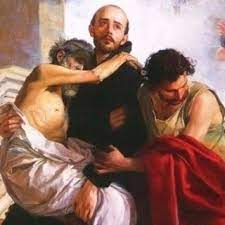Joaquim Magalhães de Castro
The news of João’s arrest, torments and subsequent release traveled quickly through India and also did not take long to reach Portugal.
Apparently, the reason that led the Provincial Manuel Rodrigues (1684-1687) to call João de Brito was the simple desire to provide some rest for the missionary. But later, Rodrigues decided to send him to Europe as a proxy. He thus assigned João the responsibility of going to Rome to report to the Father General on the situation in the Province of Malabar.
Despite his displeasure, João had to obey, and left Goa at the end of 1686. After an eventful journey, with a forced stopover in Brazil, the armada arrived in Lisbon on September 8, 1687.
When he disembarked in the capital, word of mouth was already spreading the story of the tortures he had endured in Maravá. He was, therefore, a celebrated figure – the hero who had faced the Gentiles, had suffered in the name of Christ, and had neither yielded nor died.
Many of those who greeted him certainly thought that this man had already accomplished his mission and was now entitled to a more peaceful life. One of those, who so conjectured, was the monarch himself. At court, João was received with enthusiasm; the ministers of the kingdom and other high dignitaries were, in many cases, his former playmates, when they were all pages of the Infante D. Pedro, now seated on the throne.
João traveled to several locations, namely Santarém, Coimbra, Porto, Braga, Évora, Monforte and Portalegre. In all of them, he spoke about the mission of Madurai; at these lectures, he wore his pandara-swami robes. In his daily life, he maintained many of the habits that were part of his routine in India, especially those concerning food. It is also known that while he was in Portugal, he never slept in a bed, continuing to lie on the floor on a mat.


 Follow
Follow


